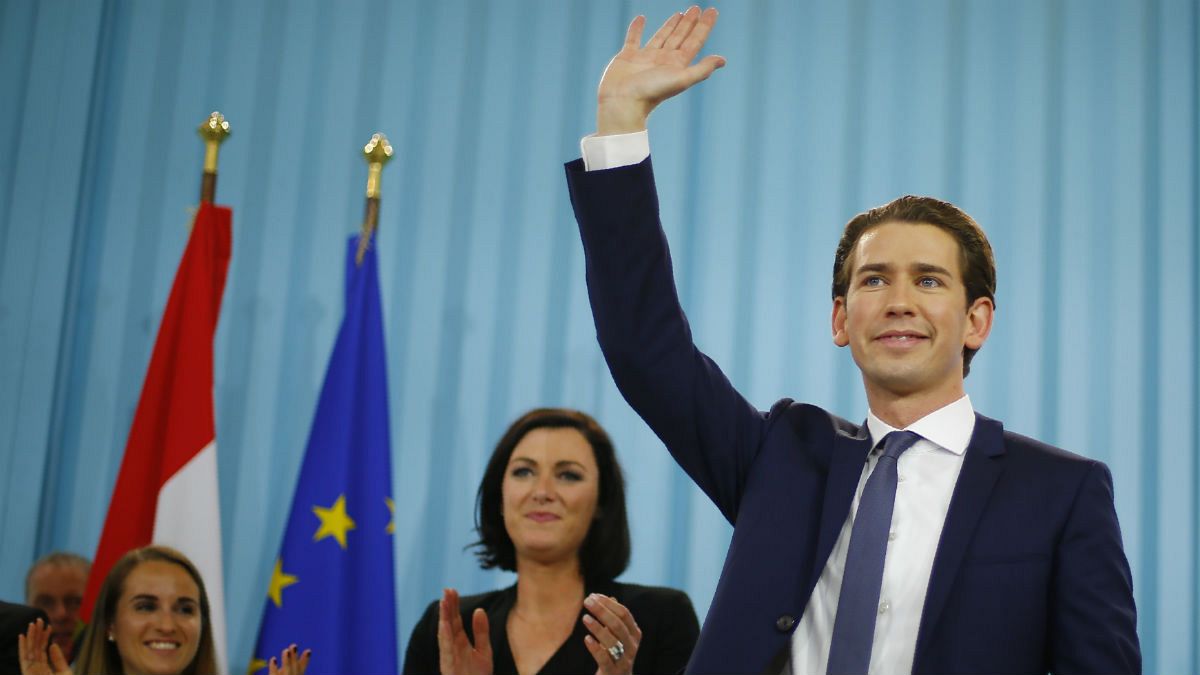A slick image and a tough line on immigration has proved successful for the 31-year-old.
The campaign trail for Sebastian Kurz, set to become the world’s youngest national leader after his party was on course to win Austria’s snap general election, was all about selfies, slick hair and sharp suits.
This smooth image, coupled with a tough line on immigration, has helped pull-off a meteoric rise for the 31-year old.
Politically-active from a young age, his career took off in 2009 when he became chairman of the youth wing of the Austrian People’s Party (OVP).
Two years later he had quit his law studies at the University of Vienna to concentrate on his political career.
Kurz was elected as an MP in 2013 and in the same year became the world’s youngest foreign minister.
It has proved opportune timing – he was installed just before Europe’s migrant crisis began.
Kurz was an early critic of German Chancellor Angela Merkel’s open-border policy and he infuriated Berlin when he brokered the closure of the Balkan route into Europe. But today he can claim the plaudits for a move few now question, even in Germany.
It allowed him to make immigration a credible theme of Austria’s snap election, which was triggered earlier this year after Kurz refused to continue in coalition with the centre-left Social Democrats.
During the campaign – which some experts likened to that of a popstar rather than a politician – Kurz was everywhere in the media, relentlessly on-message and often in his uniform of a slim-fitted suit, open-collared shirt and slicked-back hair.
Austrian journalist Gernot Bauer said Kurz spent hours taking selfies with supporters and had young people jostling to get near him.
His good looks are a nod to the Justin Trudeau genre of politician but he has also added the idea he is an ‘outsider’, like Emmanuel Macron, creating his own movement which has included political newcomers.
But beneath his slick image lies a conservative Roman Catholic whose views often overlap with those of the far-right Freedom Party (FPO), which accuses him of stealing its ideas.
OVP elders laud him as an “exceptional political talent”. Former coalition colleagues describe him as a scheming media hog.
“He has done what no one from the OVP has ever done before, namely steal the FPO’s thunder,” one senior OVP politician said of Kurz, who earned government colleagues’ grudging respect as a junior minister in charge of integrating immigrants.
Kurz has frequently reminded his audience that he denounced the open-border policy, or “welcoming culture”, of Merkel and Werner Faymann, who was Austrian chancellor in 2015.
He said migrants rescued in the Mediterranean should be returned to Africa to discourage them from attempting the perilous sea crossing.
“We could save ourselves these in-between phases if there were not an automatic reflex to say ‘no’ to each of my proposals for purely emotional reasons,” he told newspaper Die Presse.
Politically active from the age of 10, Kurz joined the OVP’s youth wing in Vienna in 2003. After a year of military service, he became its national head six years later, pushing local issues such as a round-the-clock subway service.
His criticism of Merkel and his defense of Hungarian Prime Minister Viktor Orban’s border fences have shown he is not afraid to go it alone. But he is untested at the highest level on a wide range of issues, not least the economy.
